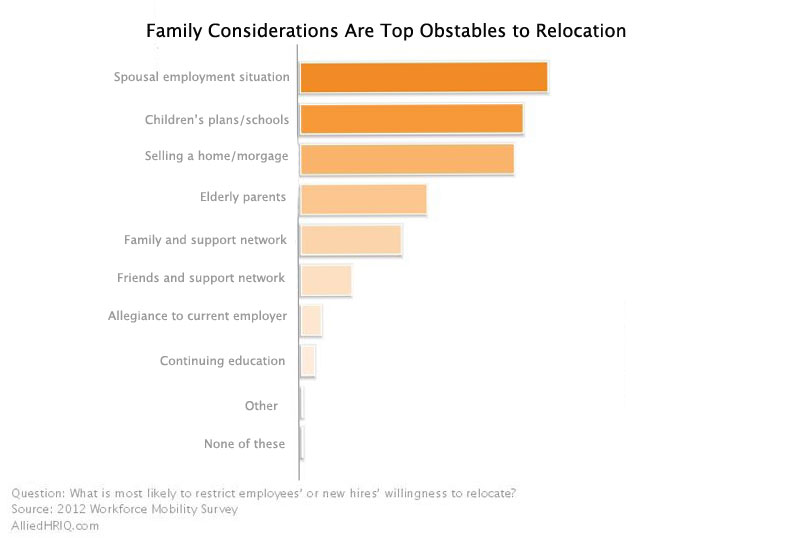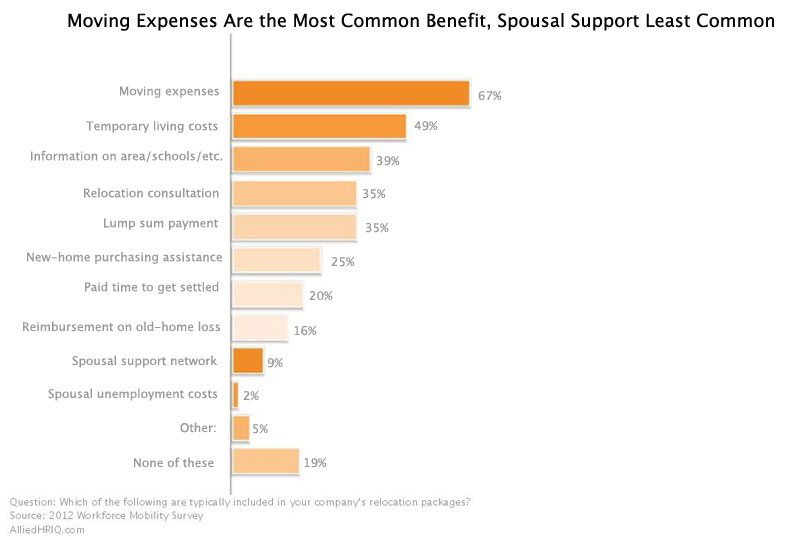(Editor’s Note: Today’s post is brought to you by Allied Van Lines, proud sponsor of the “2012 Workforce Mobility Survey”, designed to capture the voice of HR on topics related to workforce mobility. Allied has more than 75 years of experience in corporate, household and international relocation.)
--------------------------------------------------------------------------------------------
It's kind of interesting, surprising, and often enlightening when instead of simply continuing to roll out the same workforce programs and practices year after year that organizations stop and actually ASK the constituencies that they are trying to serve and support what is important to them.
Whether it is an internal training program, the roll out of a new IT solution designed to help make their jobs easier, or even a more outwardly-facing recruiting program or campaign, often it can be very hard for organizations to one, accurately understand the needs and goals of their audiences, and two, take the time to inquire, survey, and assess these needs and goals in a thorough enough manner such that any corrective actions can be justified and taken. Often, we roll out programs and judge them by their outcomes only, and at times not at all aware or capable of understanding the real causes driving those outcomes. All which makes taking the time and putting in the up front effort to understand the market's needs more important.
I'll highlight one interesting example of this kind of disconnect, this one pulled from the data in the recently released Allied Workforce Mobility Survey 2012, namely the disconnect between what potential candidates looking at a relocation to take a new job opportunity say is important to them, and what organizations typically focus on in their development of relocation packages. I'll share two charts from the survey and then offer my take.
Figure 1 - Candidates Top Obstacles to Relocation

Figure 2 - Benefits Offered in Relocation Packages

Did the disconnect stand out to you as it did to me when I initially saw these results?
The number one obstacle to a potential job candidate's relocation and their ability to successfully join your organization is their spouse's job situation, yet surveyed organizations almost never directly address this obstacle in their current set of relocation package components. Seems crazy right? And while spousal relocation support is not an easy benefit to provide, since it is so important it seems to me that organizations, (as is typical in Higher Education environments), that can and do offer this service are likely to have much better long-term outcomes.
But it also illustrates a more broad set of issues and considerations with recruiting new staff, whether they need to be relocated or not. And that is that very often the decision to accept a new job, to make a career turn, and at times, to uproot a family from one place to another, is a group decision. Spouses, children, extended family, maybe even colleagues and friends all play a role in these big decisions, but typically an organization doesn't or simply can't address them. I don't have a magic secret or simple list of tips that can help organizations and leaders in this, except to say just as you have problems, issues, concerns outside of work, with your family and friends, so does everyone you recruit, hire, and employ.
People are complicated. And one thing is for sure, ignoring all these complications, and thinking about 'work' and career decisions like they exist in a separate box or compartment from the rest of life is a sure way to miss out on great candidates, and to fail in some respects in becoming a place where great, (and complicated), people will gravitate toward.
--------------------------------------------------------------------------------------------
If you would like to learn more about Allied Van Lines, please check out their website or blog. And if you would like to get more information from the Workforce Mobility Survey, you can click here. It’s definitely worth checking out

 Steve
Steve


